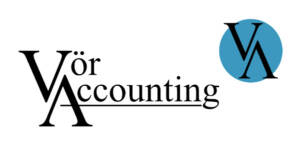In The Spring Edition Of Our Newsletter, We Are Pleased To Include The Following Commentaries On:
Budget Highlights & End of Tax Year Preparation
by Dominic Charles, Fellow Chartered Accountant at Vor Accounting Limited
Transact Updates; The New ‘British ISA’; Investment Markets & Cryptocurrency
by Gianni Campopiano, Managing Director & Chartered Financial Planner of Independent, Advanced & Clear Ltd t/a Foundation Financial Planning
![]()

Vale Farm, Warrs Hill Road
North Chailey
East Sussex
BN8 4JE
TEL: 01444 63503
EMAIL: dominic@voraccounting.co.uk
In this newsletter I wanted to give a very brief update on the recent Budget and then cover some items you should consider from a tax planning perspective (with a focus on income tax) as we near the end of the tax year.
A: Budget Headlines
You will have seen much in the press for the recent budget. Here are selected highlights for consideration across your personal and business interests.
- National Insurance Contributions (NICs)
From 6 April 2024:
- The main rate of employee Class 1 NICs is reduced by 2%, from 10% to 8%.
- The main rate of self-employed Class 4 NICs is also reduced by 2%, from 8% to 6%.
It’s not often we are given tax reductions and this will be of benefit to anyone who is employed or self-employed. This is on top of the earlier reduction and so equates to a 4% reduction.
- Land & Property: Capital Gains Tax (CGT) Rate for Residential Property Sales
From 6 April 2024:
- A reduction in the higher rate of CGT from 28% to 24% for sales of residential property.
- The lower rate of tax remains at 18% for any gains that fall within an individual’s basic rate band.
Remember that residential property gains must be declared and paid within 60 days of completion.
- Furnished Holiday Lettings Tax Regime
From April 2025:
- The Furnished Holiday Lettings tax regime is to be abolished as the government had identified distortions created in local economies as a result of the regime.
This was a relatively generous tax break for those renting out properties as it was treated as a trade which included benefits in terms of full offset of mortgage interest costs, capital allowances on furniture, included as relevant earnings for pension contributions and Business Asset Disposal Relief for capital gains.
- Higher-Income Child Benefit Charge (HICBC)
- Reform of the Higher-Income Child Benefit Charge and the creation of a household-based system from April 2026.
- In the meantime, the threshold raised from £50,000 to £60,000 and bring the taper up to £80,000 from £60,000.
Note that the current system allows you to receive child benefit but if either partner earns more than £50,000 then you must start repaying the benefit which you do through your self-assessment tax return. Where the HICBC cannot be avoided, consider making an election to no longer receive Child Benefit, as this may spare the need to file a tax return.
- VAT: Registration/deregistration thresholds increase by £5,000
From 1 April 2024:
- The VAT registration threshold increases to £90,000 from £85,000.
- The VAT deregistration threshold increases from £83,000 to £88,000.
The aim is to remove some sole traders and businesses from the VAT regime. However, there can be advantages in registering for VAT even if your turnover is below the threshold.
- Inheritance Tax (IHT): Change in Scope
From 6 April 2025 at the earliest: 
- Inheritance Tax will move to a residence-based regime, with a 10-year exemption and ‘tail-provision’ periods for arrivers and leavers.
Currently IHT is based on whether you are “domiciled” in the UK – a potentially complicated definition whereas whether you are resident is much more based on fact. This perhaps is an example of how the UK tax system can be simplified!
B: Tax Preparation for the end of the tax year
April 5th is the end of the personal tax year. Now is a good time to get prepared and consider how to reduce your tax bill. This is a very small selection with a focus on income tax considerations.
Income Tax, personal allowances and basic rate bands
Take advantage of all allowances to reduce tax; eg:
- Personal Tax Allowances. Don’t forget to use them!
- Dividend allowance: The dividend allowance reduces to £500 from April 2024.
- Savings (ie interest) allowance (£1000 for basic rate tax payers and £500 for higher rate taxpayers).
- ISA allowance (£20,000 in 2023/2024 or consider funding an ISA for children or grandchildren; the limit is £9,000 for 2023-24).
- Pensions annual allowance. If you are not using all of your pension allowance, this can be useful to reduce the higher rate tax between £100,000 and £125,000 due to the removal of the personal allowance. Ensure contributions are paid (that is that they leave the bank account) within the tax year in order to claim relief.
- Consider the transfer of income-producing assets between spouses and family members to use up lower rate bands.
- Consider the Transferable married couples allowance for married couples and civil partners. The amount that can be transferred for 2023-24 is £1,260. The election is of benefit where one spouse/partner has income below the personal allowance. You can go back four years meaning claims for 2019-20 may be made up to 5 April 2024.
- Consider whether to make a Joint Property Election where spouses or civil partners wish to vary their beneficial entitlement to jointly owned assets and income, other than 50:50 (again to take advantage of a partner is in a lower tax band).
- Rent-a-room relief gives a form of relief from Income Tax where a taxpayer provides furnished residential accommodation in their only or main residence. Provided that qualifying rental income does not exceed the specified limit in a tax year, all such rental income is tax-free. The amount of the relief is £7,500 p.a.
- Consider donations under Gift Aid and contributions to pensions: both extend the basic rate tax band and attract tax relief at higher rates
There are also planning opportunities for IHT and Capital Gains Tax.
If you would like additional support please do not hesitate to contact me.

Dominic P Charles, BSc
Fellow Chartered Accountant
Vör is a member practice of the ICAEW and is supervised by them for anti-money laundering regulation.
![]()

Contact us by email
01444 410 276
1st & 2nd Floor Front Office Suites, 38-42a South Road, Haywards Heath, RH16 4LA
Family view on Transact
New functionality on Transact will allow families to see each other’s portfolios on Transact and also provide a total family valuation at a glance. But fear not, each member of the family needs to agree to the visibility, so if your children have portfolios and you don’t want them to see your investments, you simply do not share your information.
How does it work?
Mrs Miggins can send a request to view Mr Miggins’ portfolio via the mobile or desktop website. Mr Miggins then logs in and accepts the request. It is as simple as that.
What information is shared?
On the desktop website, Mrs Miggins can view Mr Miggins’ portfolio value, under Reports > Portfolio Valuation, and performance, under Reports > Investment Summary.
There is also a new dashboard widget which allows her to see the total family valuation at a glance.
On the mobile website, she will also be able to see the family valuation.
British ISA
The “British ISA” announced in the Spring Budget is expected to be delayed until after the general election, most likely becoming available in April 2025 if the Conservatives retain power; however, it may not see the light of day with a change of government.
The British ISA, which proposes to allow savers to invest £5,000 a year tax-free into the British stock market, will not be introduced in the new tax year after the Treasury concluded it would be too expensive.
Instead, it will be subject to a three-month consultation, with no firm timeframe for the products hitting the market.
While Jeremy Hunt announced consultations with the view of establishing a further £5,000 ISA allowance for the UK investments, namely the Great British ISA, doubts have been cast as to whether this will ever come to fruition
Given the consultation will close in June, it was always unlikely that we would see this new tax allowance be available with ISA providers until 6th April 2025, and very unlikely that this would be pre-election. There is however an election that will sit between consultation and implementation, and the Conservative Government retaining power is no guarantee.
From a financial planning perspective, it would be sensible to only use the more restrictive £5,000 allowance once the normal £20,000 ISA allowance has been used.
Giving further tax benefits to those wealthier doesn’t align with Labours views, and while any Government would want to encourage UK investments, there are other ways to go about this – such as the Labour Government saying that the existing ISAs held should have say 50% UK exposure to keep their tax benefits.
While the £20,000 ISA allowance hasn’t increased since 2017, the ability to protect a further £20,000 every year of cash/investments from tax on income and growth is still a generous allowance, particularly when you consider allowances other countries offer. Given the above, it is not anticipated that a Labour government would look to offer an additional £5,000 allowance (and have said so themselves).
The current Government opening a consultation doesn’t mean that it will come into force, be an effective financial planning tool, or even achieve the Governments objectives of boosting UK business.
The positive news is that if you have already used your ISA allowance of £20,000 there are other investment options that potentially give a greater level of tax benefits if you are looking to invest into smaller UK companies, and if you are a high earner that is also restricted on pension contributions this allows us to do some very efficient investment and tax planning.
But as I say, whether this ever comes to fruition or not remains to be seen.
Investment Markets
Due to the importance of the subject when I compiled this document in September last year I began my report with interest rates and the subject of interest rates is as important now as it was then. The rise in interest rates over the last few years has been analogous to cycling up Ditchling Beacon, slow and steep. However, if I continue the metaphor, we are at the top of the Beacon now and whilst it is cloudy we can see into the distance and this cloudy view suggests investors may be in for much better time when compared to the last two years.
In order of priority the possible threats to an improving investment landscape maybe as follows:-
- Interest rates going higher than they are now due to stubborn inflation
- US Inflation came in slightly hotter in February
- Coupled with more restrictive monetary policies to include the reversal of QE
- The excitement in Artificial Intelligence (AI) fades and is seen as a bubble
- Low or no growth but inflation continuing to rise known as stagflation
- Global Debt coming more into focus and an increasing amount of GDP being required to service this dept and at much higher rates of interest
- This takes away capital from investment which interrupts growth
- It also feeds into the rising price of gold and bitcoin
- Geo-political risk. However, as pointed out by Bill Bonner in this week’s MoneyWeek, Russia has shown it can barely capture an area right on its flank and economically speaking should we be concerned about an entity with a GDP less than the value of Nvidia?
For our clients who have had their annual review most recently they would have seen a marked improvement in their investment performance and the prospect of further gains in the shorter term as the yield curve starts to forecast a downward movement in interest rates. We have been waiting patiently for this movement which has started to materialise and with the forecast for inflation to drop quite sharply in the UK (not in the US) then portfolio gains will accelerate and we have positioned portfolios to respond well to this outcome.
Some very interesting market areas are Bitcoin and Japan.
Bitcoin/Cryptocurrency
The continuing success of Bitcoin continues to confound the financial aristocracy but it also confounds the patron saints of Bitcoin in that the idea behind Crypto as reported in the FT this weekend was to decentralise finance amongst other things this means people have to look after their crypto themselves and as it turns out people are not good at this and don’t want the responsibility and because of this fraud and theft is an issue. Worth mentioning that only Bitcoin has its supply limited. In the US you can now buy what is known in the industry as a “Spot priced ETF” this is not yet available to retail investors but institutional investors do have access to something similar. A recent event known as halving as also increased the rarity of Bitcoin. An event known as halving is due to take place in April (the last one being in May 2020) and this typically increases the price of Bitcoin as been seen recently
Japan
Japan has been able to avoid the inflation that most, of the rest of the world has had to endure but is in the process of raising its interest rates for the first time for a whilst this may have the effect of putting a brake on the fantastic growth it has enjoyed over the last year to eighteen months because if Japan raises rates the yen will strengthen making its exports more expensive which will hurt Japanese stocks.
Better Investment Environment
What has caused the better investment environment? Higher interest rates are a byproduct of a much stronger than expected growth as reported by Katie Martin in the FT. Zero rates of interest were a sign of ill health, interest rates were low because economies were struggling as confirmed by Karen Ward at JP Morgan. So higher rates are a sign that global economies are improving and the prospect of interest rates receding is good for fixed interest so both asset classes are in a sweet spot.
Foundation Financial Planning survey the investment market continually giving us the best chance to ensure our client portfolios are positioned to take advantage where possible.
Thank you.
Yours sincerely,
Gianni Campopiano
Managing Director & Chartered Financial Planner
Independent, Advanced & Clear Ltd, T/A Foundation Financial Planning is authorised and regulated by the Financial Conduct Authority. FCA Number: 917076




